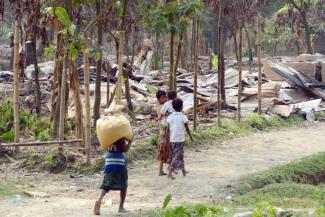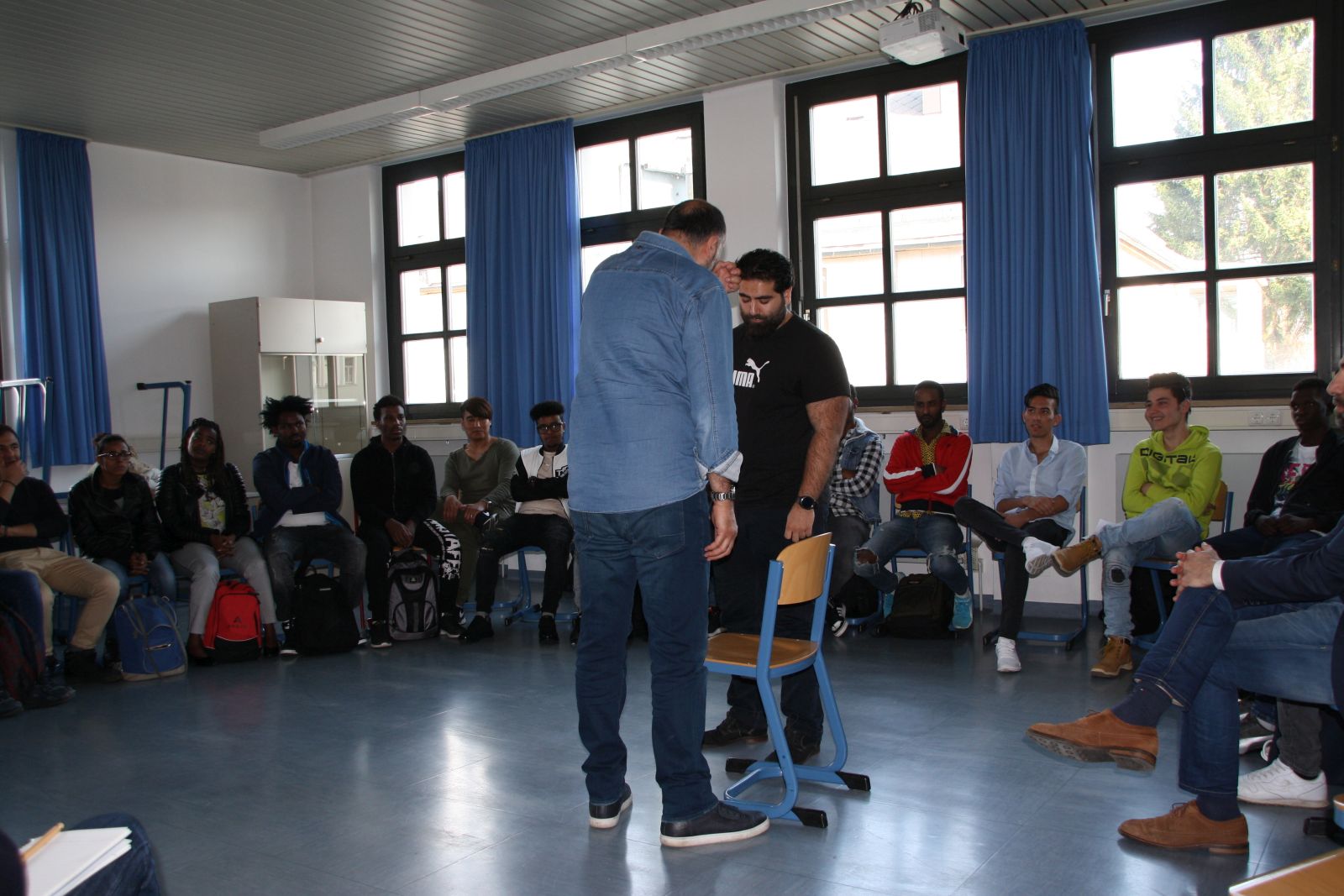Minorities
Ethnic cleansing

In October 2016, three border posts of Myanmar were attacked at the border to Bangladesh. Nine policemen died, and weapons were stolen. Officials accused radical members of the Rohingya, a Muslim community, of the assaults, and the situation has been escalating since then.
The security forces responded with brutal force, leaving more than 80 people dead, according to media reports. The government declared the area around the border town of Maungdaw a zone of military operations and imposed a curfew. Journalists, human-rights activists and humanitarian helpers may not enter the zone. Refugees report cases of extrajudicial killings, arrests, rape, torture and the destruction of buildings.
Human-rights organisations accuse Myanmar of ethnic cleansing and covert genocide. Zeid Ra’ad Al Hussein, the UN high commissioner for human rights, said in December: “Myanmar’s handling of northern Rakhine is a lesson in how to make a bad situation worse.” He said he was deeply disappointed because the UN Human Rights Office’s persistent request for access to the area was not approved. According to him, the Office gets reports of human-rights abuses daily.
The Rohingya have long been discriminated against in the predominantly Buddhist country. They are denied citizenship and basic rights (see Ridwanul Hoque in D+C/E+Z e-Paper 2016/04, p. 42, and Katja Dombrowski in D+C/E+Z e-Paper 2015/12, p. 4).
Tens of thousands of people are on the run. In the last three months of 2016, 50,000 refugees from Myanmar were officially registered in Bangladesh; according to UN figures, another 30,000 were internally displaced. Since the outbreak of violence in 2012, 140,000 Rohingya have been living in camps and ghettos in the state of Rakhine. Others have fled to neighbouring countries where they tend to live in inhumane conditions. The exodus of about 30,000 people from Myanmar by boat caused a Southeast Asian refugee crisis in 2015.
Amnesty International criticises Bangladesh for detaining refugees and forcing them to return to Myanmar. According to the human-rights organisation, such action violates the principle of non-refoulement since it is absolutely prohibited under international law to forcibly send people back to a county or place where they are at real risk of serious human-rights violations. “The Bangladeshi government must not add to the suffering of Rohingya,” says Champa Patel, AI’s South Asia Director. “They should be recognised and protected as refugees fleeing persecution, not punished for who they are.”
In an open letter, more than a dozen Nobel peace laureates have urged the UN Security Council to intervene in Myanmar. They criticise their fellow Nobel laureate Aung San Suu Kyi of failing in the Rohingya issue. Many had placed great hopes in the new government under her leadership that took office about one year ago, not least in regard to how Myanmar treats ethnic minorities. Such hopes have been bitterly disappointed.
In August 2016, the Myanmar government established the Rakhine State Advisory Commission. It is headed by Kofi Annan, the former UN secretary-general, and has the mandate to make proposals on how to solve the conflict within one year. However, the independence of the commission is in doubt, according to Christina Grein, who coordinates the Burma initiative of Asienhaus, a non-governmental German foundation. She points out, furthermore, that the commission’s proposals must comply with Myanmar law, and that no Rohingya is among the nine-member commission.
Katja Dombrowski
Links
Amnesty International: Bangladesh pushes back Rohingya refugees amid collective punishment in Myanmar. 24 November 2016.
https://www.amnesty.org/en/latest/news/2016/11/bangladesh-pushes-back-rohingya-refugees-amid-collective-punishment-in-myanmar
Blickwechsel 13/2016: Menschenrechtsverletzungen in Myanmars Rakhine-Staat: Terrorismusbekämpfung als Vorwand für militärische „Säuberungsaktion“? (Human-rights violations in Myanmar’s Rakhine State: fight against terrorism as excuse for military “cleansing operations”? Only in German.)
http://www.asienhaus.de/uploads/tx_news/2016_DEZ_Blickwechsel_Rakhine.pdf













